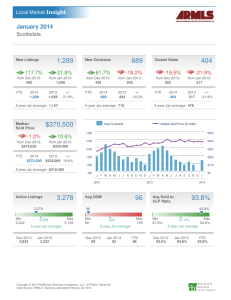New front door
 TrueHome Design Build brought an urban feel to this farm house with a contemporary front door.
First impressions mean a lot. A new front door can enhance curb appeal, improve security and lower utility costs. According to Remodeling magazine’s Remodeling 2014 Cost vs. Value Report, a $1,162 steel entry door replacement project returns 96.6 percent of your investment. Fiberglass doors are generally more expensive, but they’re still a smart investment. According to the same report, a $2,822 fiberglass entry door project will yield a return of 70.8 percent.
TrueHome Design Build brought an urban feel to this farm house with a contemporary front door.
First impressions mean a lot. A new front door can enhance curb appeal, improve security and lower utility costs. According to Remodeling magazine’s Remodeling 2014 Cost vs. Value Report, a $1,162 steel entry door replacement project returns 96.6 percent of your investment. Fiberglass doors are generally more expensive, but they’re still a smart investment. According to the same report, a $2,822 fiberglass entry door project will yield a return of 70.8 percent.
Garage door replacement
 Tuckahoe Creek Construction, Inc. gave this colonial home character with a new garage door.
The appearance and condition of your garage door also plays a big role in your home’s overall appearance. According to the Cost vs. Value Report, an uninsulated, 16-by-7-foot garage door costing $1,534 will increase your home’s resale value by $1,283, a return of 83.7 percent.
Tuckahoe Creek Construction, Inc. gave this colonial home character with a new garage door.
The appearance and condition of your garage door also plays a big role in your home’s overall appearance. According to the Cost vs. Value Report, an uninsulated, 16-by-7-foot garage door costing $1,534 will increase your home’s resale value by $1,283, a return of 83.7 percent.
Weatherized windows
Lindus Construction uses a variety of custom-fit, maintenance-free, energy-efficient windows proven to reduce heating and cooling costs. For just a couple hundred dollars, a do-it-yourselfer with the most basic of skills can install insulation, caulk and door seals, reducing household energy consumption by almost 35 percent in the typical weatherized home. Willing to invest more? Windows can allow major losses of heat in the winter and cool air in the summer, requiring more energy — and money — to keep your home comfortable. Replacing old windows with Energy Star-qualified windows can reduce household energy bills by 7 to 15 percent and will shrink your home’s carbon footprint.Fresh coat of paint
 Isola Homes used bold blue and green paint to give this Wallingford craftsman some Pacific Northwest flair.
This may be the perfect time to kiss your dated mint bathroom or mauve rec room goodbye. A gallon of paint typically costs less than $40 and will provide one-coat coverage for about 350 square feet. If you think you might be putting your house on the market sometime soon, opt for neutral colors that have more universal appeal. Even if you’re staying put, a fresh coat of paint can update and personalize your space for a fraction of the cost of a total remodel.
Isola Homes used bold blue and green paint to give this Wallingford craftsman some Pacific Northwest flair.
This may be the perfect time to kiss your dated mint bathroom or mauve rec room goodbye. A gallon of paint typically costs less than $40 and will provide one-coat coverage for about 350 square feet. If you think you might be putting your house on the market sometime soon, opt for neutral colors that have more universal appeal. Even if you’re staying put, a fresh coat of paint can update and personalize your space for a fraction of the cost of a total remodel.
Lighting
 Titled “Serenity in the Woods,” this TN home by Eddie Miles has a warm, yet contemporary feel with under-cabinet lighting.
Updated home lighting can enhance your decor, save on energy costs and increase your safety. Even if a new chandelier isn’t in your budget, dimmer switches will allow you to control the intensity of light throughout your home while saving electricity. A basic dimmer costs less than $15 while fancier, remote-control and programmable dimmers can be purchased for $40 and up.
Metal can or recessed lights will brighten dark corners while under-cabinet light strips can add much-needed light to kitchens, craft rooms and laundry rooms. Unless you have knowledge of electrical wiring, you’ll need to hire a pro to handle the installation.
Please note that this Scottsdale Real Estate Blog is for informational purposes and not intended to take the place of a licensed Scottsdale Real Estate Agent. The Szabo Group offers first class real estate services to clients in the Scottsdale Greater Phoenix Metropolitan Area in the buying and selling of Luxury homes in Arizona. Award winning Realtors and Re/MAX top producers and best real estate agent for Luxury Homes in Scottsdale, The Szabo group delivers experience, knowledge, dedication and proven results. Contact Joe Szabo at 480.688.2020, info@ScottsdaleRealEstateTeam.com or visit www.scottsdalerealestateteam.com to find out more about Scottsdale Homes for Sale and Estates for Sale in Scottsdale and to search the Scottsdale MLS for Scottsdale Home Listings.
Titled “Serenity in the Woods,” this TN home by Eddie Miles has a warm, yet contemporary feel with under-cabinet lighting.
Updated home lighting can enhance your decor, save on energy costs and increase your safety. Even if a new chandelier isn’t in your budget, dimmer switches will allow you to control the intensity of light throughout your home while saving electricity. A basic dimmer costs less than $15 while fancier, remote-control and programmable dimmers can be purchased for $40 and up.
Metal can or recessed lights will brighten dark corners while under-cabinet light strips can add much-needed light to kitchens, craft rooms and laundry rooms. Unless you have knowledge of electrical wiring, you’ll need to hire a pro to handle the installation.
Please note that this Scottsdale Real Estate Blog is for informational purposes and not intended to take the place of a licensed Scottsdale Real Estate Agent. The Szabo Group offers first class real estate services to clients in the Scottsdale Greater Phoenix Metropolitan Area in the buying and selling of Luxury homes in Arizona. Award winning Realtors and Re/MAX top producers and best real estate agent for Luxury Homes in Scottsdale, The Szabo group delivers experience, knowledge, dedication and proven results. Contact Joe Szabo at 480.688.2020, info@ScottsdaleRealEstateTeam.com or visit www.scottsdalerealestateteam.com to find out more about Scottsdale Homes for Sale and Estates for Sale in Scottsdale and to search the Scottsdale MLS for Scottsdale Home Listings.
 According to Zillow Chief Economist Stan Humphries, home shoppers should expect to have more buying power this spring as more inventory comes onto the market and home prices start to level off. This slightly more balanced market is another step on the road back to normal, and will help offset the impact of rising mortgage rates and more expensive homes for buyers.
Inventory rose year-over-year in 82 percent of metro areas covered by Zillow, with the largest inventory gains coming in some of the areas that were hit hardest by the housing recession, including Las Vegas (up 42.8 percent), Phoenix (up 30.5 percent) and Sacramento (up 26 percent). These metros also experienced significant cooling in the pace of home value appreciation in January, as buyers had more homes to choose from and were less apt to engage in the kinds of bidding wars that helped drive prices up so quickly last year.
Want to know what the current state of the housing market is where you live? Dive into Zillow’s data, available all the way down to ZIP code and neighborhood levels,
According to Zillow Chief Economist Stan Humphries, home shoppers should expect to have more buying power this spring as more inventory comes onto the market and home prices start to level off. This slightly more balanced market is another step on the road back to normal, and will help offset the impact of rising mortgage rates and more expensive homes for buyers.
Inventory rose year-over-year in 82 percent of metro areas covered by Zillow, with the largest inventory gains coming in some of the areas that were hit hardest by the housing recession, including Las Vegas (up 42.8 percent), Phoenix (up 30.5 percent) and Sacramento (up 26 percent). These metros also experienced significant cooling in the pace of home value appreciation in January, as buyers had more homes to choose from and were less apt to engage in the kinds of bidding wars that helped drive prices up so quickly last year.
Want to know what the current state of the housing market is where you live? Dive into Zillow’s data, available all the way down to ZIP code and neighborhood levels, 


 By
By  By
By 

 By
By 

